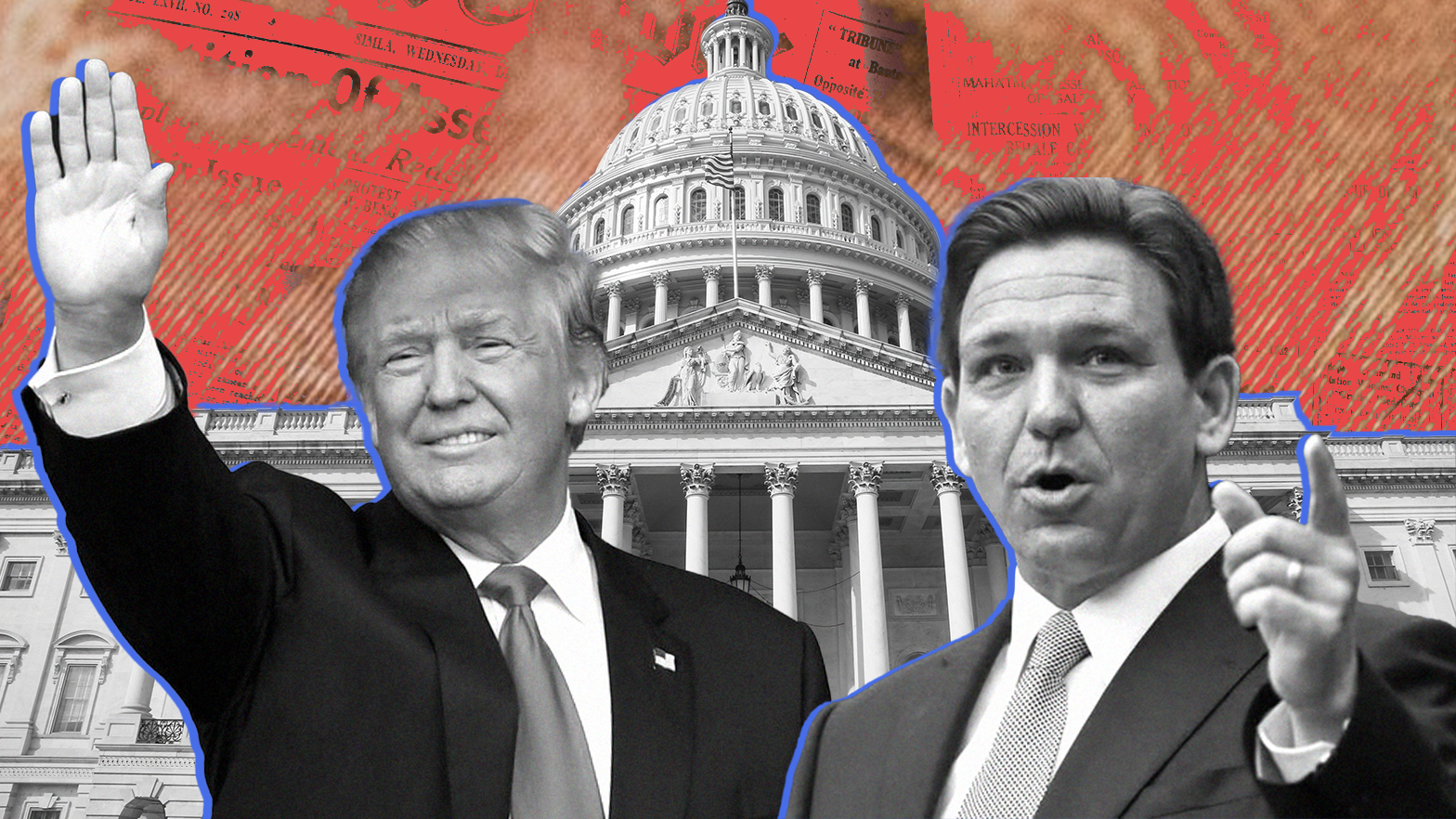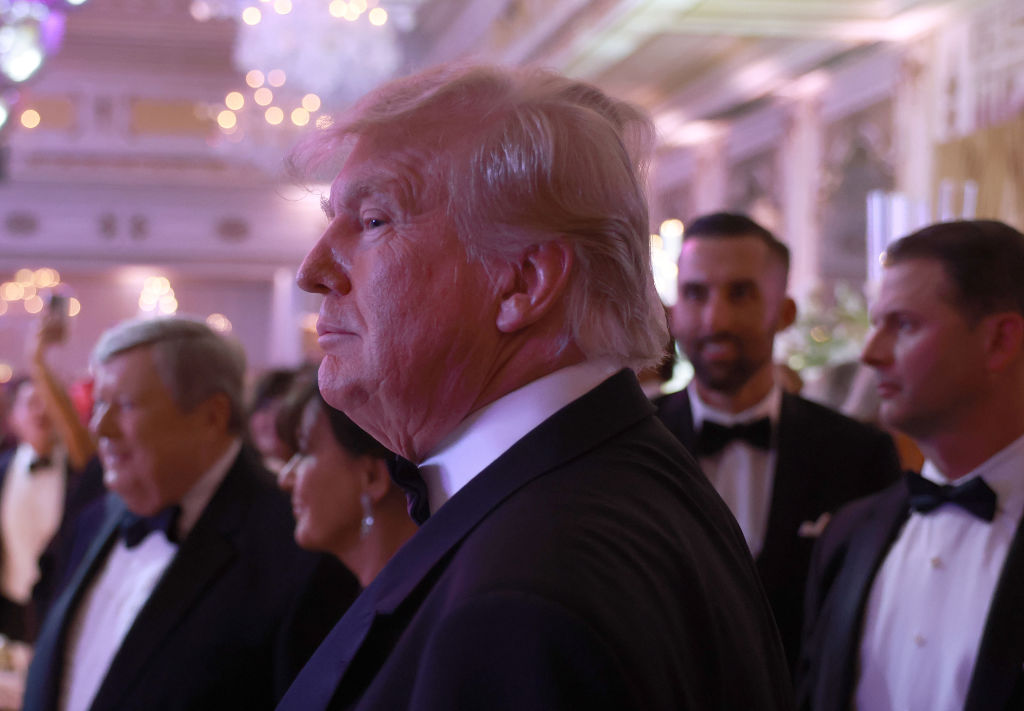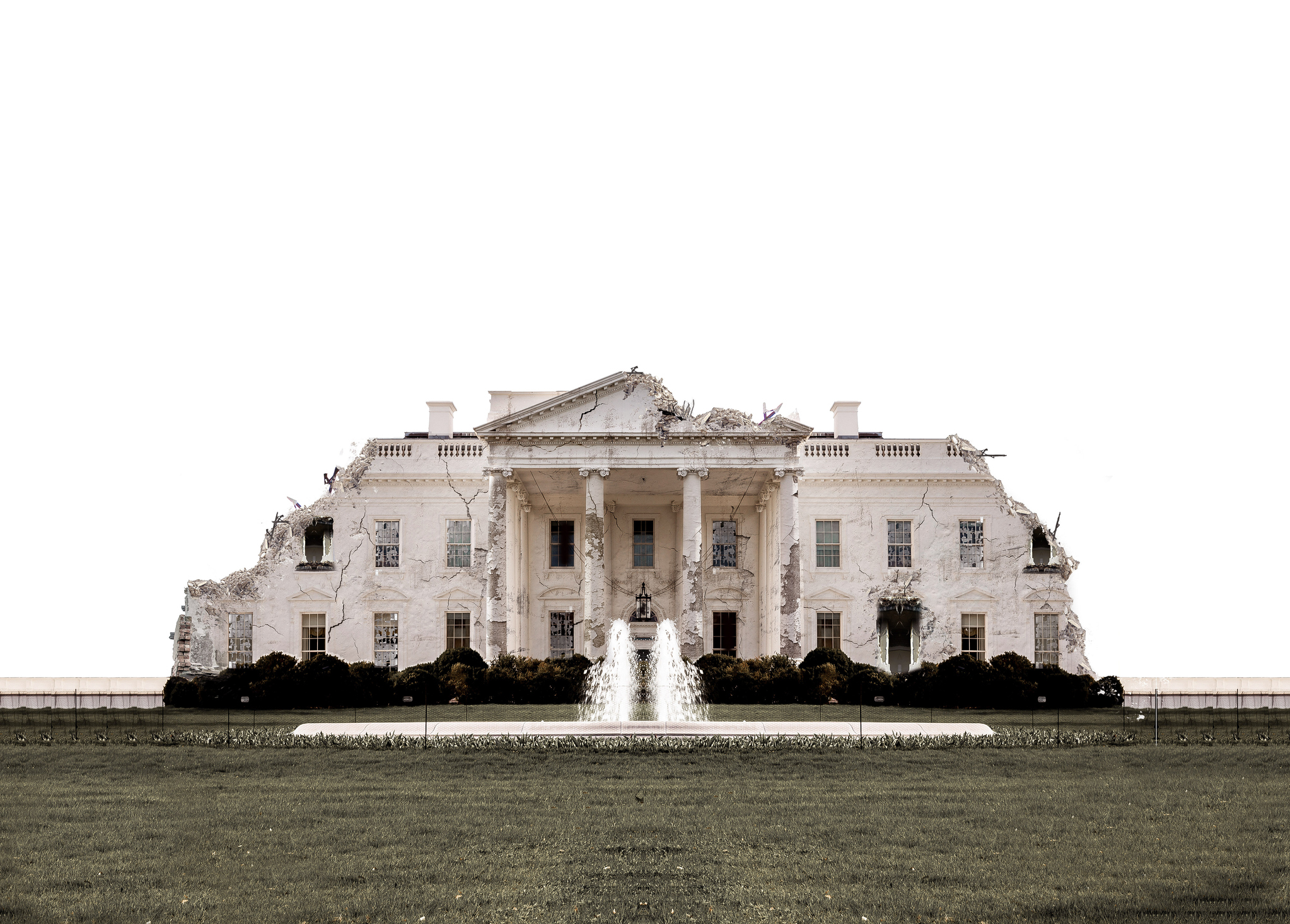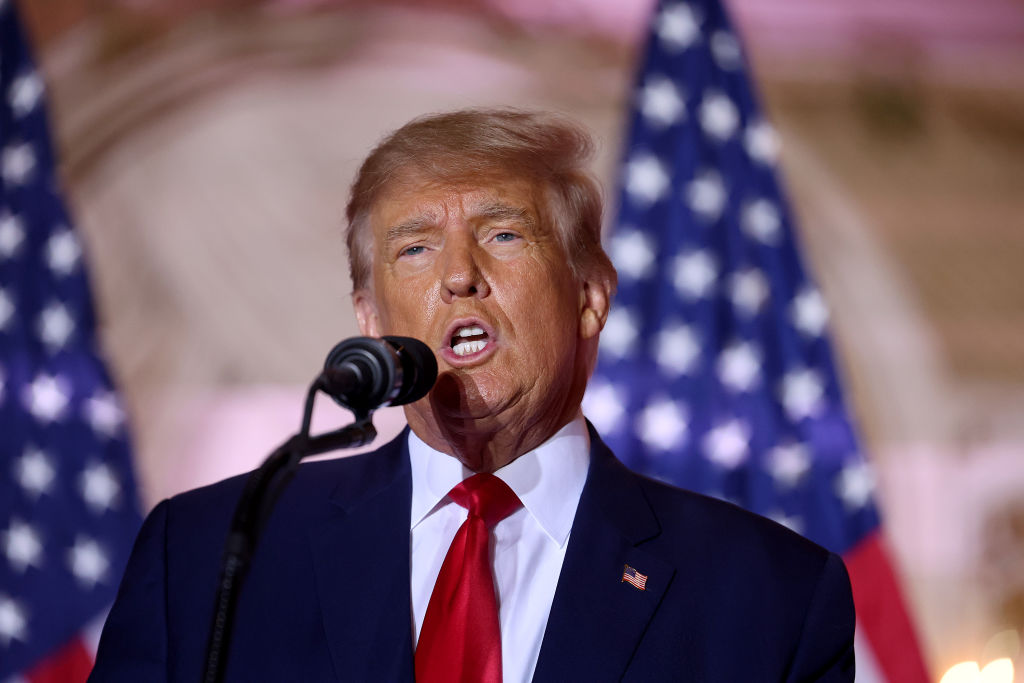And rightly so.
Justice Is Mercy

Uncompromising discipline on crime is a must to merit the Republican nomination.
Six-month-old Cristian Uvidia was nestled in his car seat in the back of his mother’s pickup truck. Beside him were his two sisters, ages seven and fifteen. As they passed through an intersection, two Chicago teenagers, on a joyride in a stolen vehicle, ran a red light and T-boned into the young family at more than 70 miles per hour.
Despite the best efforts of good Samaritans on scene, EMS, and emergency physicians, Cristian died of blunt force trauma. In layman’s terms, this means his little internal organs, his heart and his brain, were ripped from their proper positions upon impact, causing him to very painfully, inwardly, bleed to death. The rest of his family will carry their wounds with them forever.
Callously disregarding his broken family’s desperate protestations, the Chicago D.A. refuses to bring charges beyond a misdemeanor to the “urban youths” who killed Cristian as part of their carefree afternoon spent pillaging the society that feeds them.
Traffic crime is just one among many proliferating forms of lawlessness in America. The mayhem has only worsened since the “mostly peaceful” summer of 2020. For the average, law-abiding suburbanite, other forms of crime are easier to avoid and ignore than downtown riots and looting. Most of the rape, murder, and violence in America takes place in contained environments, enclosed in fatherless ghettos unpoliced by civic authorities and yet untouched by ambitious gay architects and other agents of gentrification. Upon our public avenues of transportation, however—on our roads, sidewalks, and subways—the anti-civilizational meets the average.
Since 2020, these spaces have become a clear indicator of violent spillover. The pathological narcissism that drives inner-city crime now meets no countervailing disciplinarian force in areas where police once held some authority. Everyone is now suffering the cost of the racial reckoning of 2020: in those urban power centers that have been most thoroughly claimed for anarcho-tyranny, police no longer involve themselves in policing.
Rule by the rule-less, and the ruthless, means more shootings, more robbery, and more innocent bystanders snuffed out by the liberated nihilism of the unnameable few. The statistics bear out what is already obvious to those who are willing to see what’s in front of them. A surge in death—more than doubling both homicide and traffic fatalities—followed the police force’s post-Floyd consensus to make fewer traffic stops, fewer house calls, and fewer searches for illegal handguns of suspect individuals.
Much of the 2024 presidential discourse is coming down to questions of the electability and effectiveness of Donald Trump and Ron DeSantis, who we presume will battle for the Republican nomination. These are valid questions.
Electability matters. Don and Ron will capture and repel different key demographics: Don, the silent majority, if they’re not too demoralized by now; Ron, relatively more centrists and respectability Republicans, plus those who feel betrayed by Trump’s seemingly boundless enthusiasm for Kushner-coded policy proposals.
But effectiveness matters more, and proven effectiveness will add to the electability of the Republican candidate.
Especially given the proliferation of racialist propaganda and intimidation campaigns in the wake of 2020, few are willing to utter aloud what most are feeling every time they leave the house and take to the streets: public life is a threat to my personal safety. Pervasive false consciousness is clearly visible in the response to the death of Jordan Neely, whom liberal feminists and others have adopted as their latest spotless victim. Debates continue to rage on Twitter over whether it’s racist to hope to avoid being assaulted on public transit.
Be it Don or Ron, what we need is a law-and-order president who means it and who is utterly immune to liberal agitprop about so-called “over-incarceration.” Can a candidate communicate that he will be serious about crime without, first, risking the alienation of castrated centrists, and, second, being thwarted at every turn by the media and janissary staffers on a personal religious mission to excise their white guilt through woke policy? These are questions that both Ron and Don will face.
But of course, Republicans are damned to accusations of racism no matter what is said or accomplished, as we can only hope that Donald Trump learned after the failures of the First Step Act. We must leave image-conscious voters to free themselves from the tyranny of public opinion—there’s really very little that anyone can do to appease them otherwise. It isn’t even clear that “toning it down” is an effective strategy for winning them over anyway. What matters most is the second half of that equation: who will be willing to punish the media and remove administrative lackeys that obstruct justice as a matter of course? That’s our president.
The failed state of Haiti is currently making the news. Its people are literally cooking other human beings to eat, because the country no longer has food. The story is a predictable one: in short, violent gangs were enabled by a corrupt government for decades. Eventually, state-sanctioned lawlessness loses its need for a state.
A political regime can withstand fluctuations in population density, drops in GDP, and even natural disasters of epic proportion. But it cannot withstand pervasive criminality. Delusional American optimism permits lawlessness to fester, imagining that relative prosperity inoculates us from a Haitian kind of decline. But nervous movements in the business world say otherwise. Private entities, including such major retailers as Walmart, are already pulling out of neighborhoods in Chicago, Philadelphia, and Atlanta that have been so ravaged by looting over the past few years that it is no longer financially viable to remain there. As for corruption, leftist officials like that contemptible Chicago D.A. work hand in glove with violent criminals, enabling and empowering them with every refusal to charge and every lenient sentence.
This retraction of commerce is a signal for serious nastiness to come. It will leave already impoverished and violent neighborhoods without a grocery store within a ten-mile radius. If law-abiding Americans think the spillover is bad now, wait until looters, with anger sharpened by hunger, come to the suburbs looking for what corporate America finally decided could no longer be written off. For the innocent children who happen to be born into those horrible circumstances, and for every onlooker who has become a peripheral victim to that unrestrained violence, justice is mercy.
The American Mind presents a range of perspectives. Views are writers’ own and do not necessarily represent those of The Claremont Institute.
The American Mind is a publication of the Claremont Institute, a non-profit 501(c)(3) organization, dedicated to restoring the principles of the American Founding to their rightful, preeminent authority in our national life. Interested in supporting our work? Gifts to the Claremont Institute are tax-deductible.
A time for unreasonable expectations and irrational politics.
The 2022 midterms were a blessing in disguise for the GOP.
Donald Trump, the GOP, and 2024.
Whoever wins in 2024, our problems run deeper.
We cannot afford a repeat performance.






